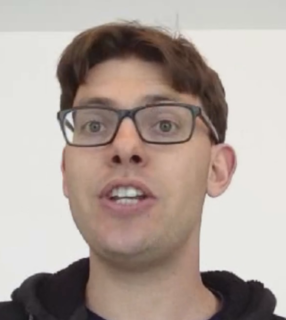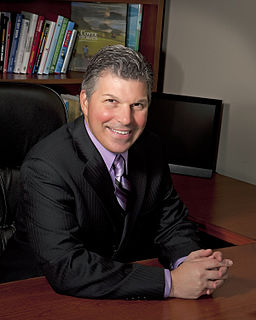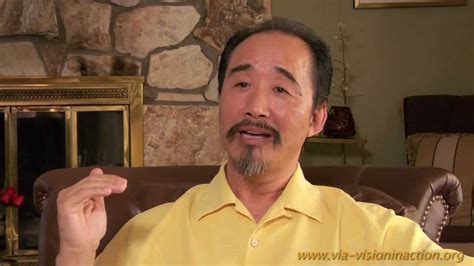A Quote by Frederick Buechner
...words are in a way our godly sharing in the work of creation, and the speaking and writing of words is at once the most human and the most holy business we engage in.
Related Quotes
Words were one of the most powerful forces known— or unknown— to man. The Most High had created this world with His words. And humans, who had been fashioned in His image, could direct the entire course of their lives with their words, their mouths as the rudder on a ship, as the bridle on a horse. They produced with their words. They destroyed with their words.
There's often a distressing disconnect between the good words we speak and the way we live our lives. In personal relations and politics, the mass media, the academy and organized religion, our good words tend to float away even as they leave our lips, ascending to an altitude where they neither reflect nor connect with the human condition. We long for words like love, truth, and justice to become flesh and dwell among us. But in our violent world, it's risky business to wrap our frail flesh around words like those, and we don't like the odds.
You shall not steal! You shall not kill! Such words were once called holy; before them people bowrd their knees and heads, and removed their shoes. But I ask you: where have there ever been better thieves and killers in the world than such holy words have been? Is there not in all of life itself - robbing and killing? And when such words were called holy, was not truth itself thereby - killed?
Get people talking. Learn to ask questions that will elicit answers about what is most interesting or vivid in their lives. Nothing so animates writing as someone telling what he thinks or what he does - in his own words. His own words will always be better than your words, even if you are the most elegant stylist in the land.
You don't realize how language actually interferes with communication until you don't have it, how it gets in the way like an overdominant sense. You have to pay much more attention to everything else when you can't understand the words. Once comprehension comes, so much else falls away. You then rely on their words, and words aren't always the most reliable thing.
Business is a creative and therefore spiritual endeavor. Great entrepreneurs enter the field of business in the same way great artists enter the field of art. With their business creation, entrepreneurs express their spiritual desire for self-realization, evolutionary passion for self- fulfillment, and creative vision of a new world. The entrepreneur's business is their artwork. The creation of business is as creative as any creation in art. In fact, building a business may be the most creative human activity.
I think all writing is about writing. All writing is a way of going out and exploring the world, of examining the way we live, and therefore any words you put down on the page about life will, at some level, also be words about words. It's still amazing, though, how many poems can be read as being analogous to the act of writing a poem. "Go to hell, go into detail, go for the throat" is certainly about writing, but it's also hopefully about a way of living.
The usual method of creation for most human beings is a three-step process involving thought, word, and deed or action. First comes thought; the formative idea; the initial concept. Then comes the word. Most thoughts ultimately form themselves into words, which are often then written or spoken. This gives added energy to the thought, pushing it out into the world, where it can be noticed by others. Finally, in some cases words are put into action, and you have what you call a result; a physical world manifestation of what all started with a thought.
I'm still happy with the way Einstein's Dreams came out. That book came out of a single inspiration. I really felt like I was not creating the words, that I was hearing the words. That someone else was speaking the words to me and I was just writing them down. It was a very strange experience. That can happen with a short book. I don't think it could happen with a long book.







































